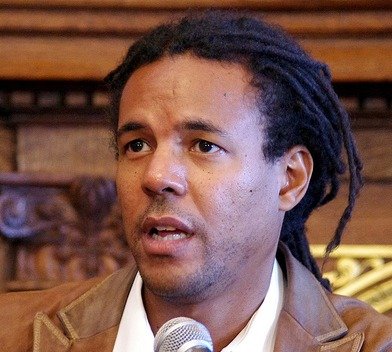


) and we’ll have to listen for another season or two to critics batting around the notion that genre-slumming is a recent trend, but none of that will hurt “Zone One,” which is a cool, thoughtful and, for all its ludic violence, strangely tender novel, a celebration of modernity and a pre-emptive wake for its demise. There will be grumbling from self-appointed aficionados of the undead (Sir, I think the author will find that zombies actually. But unless they’re entirely beyond the beguilements of art they will also feel fruitfully disturbed, because “Zone One” will have forced them, whether they signed up for it or not, to see the strangeness of the familiar and the familiarity of the strange. These readers will huff and writhe and swear their way through (if they make it through) and feel betrayed and outraged and migrained.

Broad-spectrum marketing will attract readers for whom having to look up “cathected” or “brisant” isn’t just an irritant but a moral affront. Colson Whitehead is a literary novelist, but his latest book, “Zone One,” features zombies, which means horror fans and gore gourmands will soon have him on their radar. It invites forgivable prurience: What is that relationship like?. … ( more)Ī literary novelist writing a genre novel is like an intellectual dating a porn star. Both spine chilling and playfully cerebral, Zone One brilliantly subverts the genre's conventions and deconstructs the zombie myth for the twenty-first century. Alternating between flashbacks of Spitz's desperate fight for survival during the worst of the outbreak and his present narrative, the novel unfolds over three surreal days, as it depicts the mundane mission of straggler removal, the rigors of Post-Apocalyptic Stress Disorder, and the impossible job of coming to grips with the fallen world. Mark Spitz is a member of one of the civilian teams working in lower Manhattan. While the army has eliminated the most dangerous of the infected, teams of civilian volunteers are tasked with clearing out a more innocuous variety-the "malfunctioning" stragglers, who exist in a catatonic state, transfixed by their former lives. Armed forces have successfully reclaimed the island south of Canal Street-aka Zone One-but pockets of plague-ridden squatters remain. Their top mission: the resettlement of Manhattan. Now the plague is receding, and Americans are busy rebuilding civilization under orders from the provisional government based in Buffalo. The plague has sorted humanity into two types: the uninfected and the infected, the living and the living dead. In this wry take on the post-apocalyptic horror novel, a pandemic has devastated the planet.


 0 kommentar(er)
0 kommentar(er)
